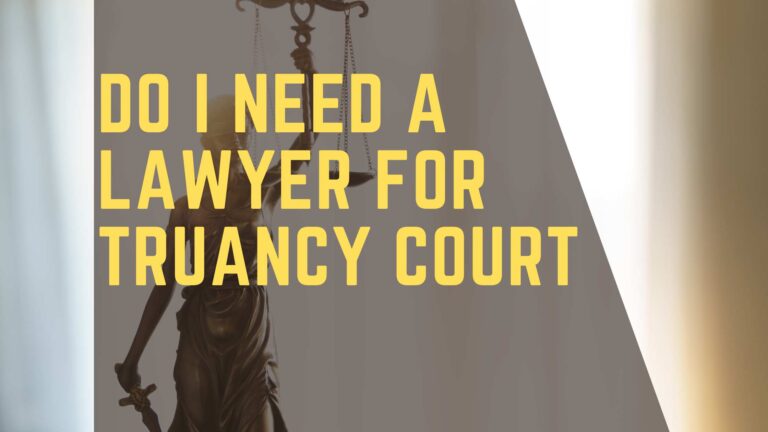Is Being a Lawyer Haram?

Being a lawyer is not inherently haram in Islam. Islamic principles permit the practice of law when it upholds justice.
Table of Contents
The question of whether being a lawyer is haram often arises within the Muslim community, considering the critical importance of adherence to Islamic law (Sharia). Lawyers play a pivotal role in society by ensuring the upholding of legal systems, and their work becomes particularly sensitive when it intersects with religious principles.
Is Being a Lawyer Haram? For Muslims, any profession, including law, must align with the ethical and moral codes of Islam, which emphasize justice, honesty, and the welfare of society. Consequently, the practice of law is acceptable so long as it does not contradict Islamic values and promotes fairness and justice.
This nuanced view acknowledges the complex interplay between secular law and religious beliefs, with many Muslim scholars arguing that the practice can indeed be an extension of one’s faith through the promotion of social justice and the resolution of conflicts.
Understanding the permissibility of being a lawyer within Islamic context requires a balance between professional responsibilities and religious duties, making it a topic of profound importance for Muslim legal practitioners and the communities they serve.
The Essence Of Practicing Law In Islam
Islam views law as a vital element of society. It ensures justice and fairness. Lawyers play a key role in this system. They uphold Sharia principles in their practice. This profession can align with Islamic values when conducted ethically.
The Role Of Sharia In Legal Practices
Sharia, or Islamic law, guides Muslims’ lives. It covers all aspects, including legal matters. Lawyers practicing in Islamic countries often refer to Sharia. They ensure solutions comply with Islamic teachings. The legal framework intertwines with religious norms.
- Sharia courts: Handle family and personal matters.
- Civil courts: Deal with broader disputes, yet influenced by Sharia.
- Contract law: Aligns with Islamic finance principles.
Ethical Considerations For Muslim Lawyers
Muslim lawyers face special ethical obligations. They must balance legal standards with Islamic ethics. Integrity, honesty, and justice stand at the core of their practice. These values mirror the tenets of Islam.
- Honesty: Essential in all client interactions.
- Confidentiality: Respect client secrets as a sacred trust.
- Justice: Strive to achieve fair outcomes.
Being a lawyer is not haram when conducted within these parameters. Practitioners must always align their legal services with Islamic principles. This ensures their role strengthens the Islamic judicial system, promoting justice for all.

Understanding Haram And Halal
Islam guides its followers through the concepts of Haram and Halal. These essential categories dictate the everyday choices of Muslims, shaping their way of life. What Muslims eat, how they earn a livelihood, and their professional paths must align with Islamic teachings. Let’s unravel these principles and see how they relate to the profession of law.
Fundamental Islamic Jurisprudence
In Islamic tradition, Sharia law forms the foundation of jurisprudence. Scholars interpret the Quran and Sunnah to decide what is Halal and Haram. The legal framework ensures moral and ethical conduct in all aspects of life. When considering a career like law, one must judge it against these pillars.
- Sharia Law: Divine laws as revealed in the Quran.
- Sunnah: Practices of Prophet Muhammad (PBUH).
- Fiqh: Human understanding and application of Sharia.
Criteria For Determining Permissibility
The distinction between what’s Halal and Haram in Islam revolves around clear and balanced criteria. These are derived from sacred texts with a focus on preserving the welfare of individuals and society. Lawyers must consider whether their work upholds these principles.
| Criteria | Relevance to Law |
|---|---|
| Intention | Pure intent in providing legal counsel. |
| Justice | Striving for fairness and avoiding harm. |
| Public Interest | Ensuring the welfare of society is a priority. |
| Authenticity | Adherence to Islamic teachings in practice. |
In essence, for a Muslim lawyer, the permissibility of their profession is not just a matter of legality but also of spiritual compliance. A thorough examination of Sharia principles reveals whether working in law upholds the complex balance between Halal and Haram.
Areas Of Law From An Islamic Perspective
Understanding the blend of law and faith is crucial for Muslims in the legal profession. Law, according to Islamic teachings, should reflect the moral and ethical guidelines outlined by Sharia. As a result, areas such as family, commercial, and criminal law are often scrutinized for compliance with Islamic principles.
Family Law And Sharia Compliance
Family law is a sensitive subject within Islamic jurisprudence. Certain critical aspects of Islamic family law include:
- Nikah (marriage) – must meet all Islamic requirements.
- Talaq (divorce) – follows a structured process respecting both parties.
- Mahr (dowry) – is a mandatory gift from the groom to the bride.
- Custody – aligns with the well-being of the child, often favoring the mother.
Careful consideration ensures all family matters comply with Sharia law, providing fair and just outcomes for all involved.
Commercial Law In Accordance With Islamic Ethics
Engaging in business activities necessitates adherence to Islamic ethics. Business practices and transactions should avoid:
- Riba (usury) – interest is forbidden in financial transactions.
- Gharar (uncertainty) – contracts must be clear and certain to avoid deception.
- Haram activities – businesses must not engage in prohibited activities.
Islamic commercial law encourages trade and investment within the ethical framework set by Sharia, promoting fairness and transparency.
Criminal Law And Islamic Moral Standards
In criminal law, Islamic teachings prioritize justice and accountability. Key elements include:
- Hudud crimes – serious offenses with fixed punishments.
- Qisas (retaliation) – allows victims to seek retribution or pardon.
- Diyya (blood money) – compensates victims or their families.
- Ta’zir (discretionary punishment) – for lesser offenses, at the judge’s discretion.
Alignment with Islamic moral standards ensures that criminal penalties serve both justice and societal harmony.

Credit: m.youtube.com
Case Studies: Muslim Lawyers In Secular Courts
In many parts of the world, Muslim lawyers find themselves practicing in secular legal systems. The professional lives of these individuals often bring them face to face with legal norms and ethical nuances that may not always align directly with Islamic law. Their experiences, as outlined in the case studies below, provide unique insights into the challenges and triumphs they encounter.
Navigating Ethical Dilemmas
Muslim lawyers in secular courts face ethical choices daily. They must balance fidelity to secular law with their religious principles. Case studies show this tightrope walk is both challenging and rewarding.
- Case 1: A lawyer declined a case conflicting with Islamic ethics. She still upheld her professional duty even when peers did not understand.
- Case 2: Another advocate designed a series of workshops. These sessions aimed to teach fellow lawyers about Islamic ethical guidelines in a secular context.
Successful Integration Of Islamic Principles
Through case studies, Muslim lawyers demonstrate their ability to integrate Islamic principles within a secular legal system. These stories show commitment to both their faith and the rule of law.
| Lawyer | Integration Practice | Outcome |
|---|---|---|
| Layla M. | Use of Islamic finance principles in contracts | Successful deal structure without interest |
| Ahmed K. | Family law decisions consider Islamic traditions | Resolutions respectful of all parties’ beliefs |
These case studies prove integration is not only possible but often leads to more ethically sound outcomes. Muslim attorneys play a pivotal role. They are a bridge between two sets of values. Their work enriches the legal landscape.
Legal Education For Muslims
Understanding the path to becoming a lawyer raises important questions for Muslims. Aligning a legal career with Islamic principles is a significant concern. Let’s explore how legal education can integrate with Islamic values. We delve into the choice of law schools and the importance of ongoing ethical development.
Choosing Law Schools With Islamic Values
Aspiring Muslim lawyers seek institutions respecting their faith. Law schools that embrace Islamic principles provide a supportive environment. These schools focus on ethical practice and Sharia-compliant law areas.
- Select law faculties with Islamic legal studies.
- Look for programs offering courses on Islamic jurisprudence.
- Consider the school’s culture and community engagements.
Institutions offering resources such as Halal food options and prayer spaces are ideal. They ensure students practice their faith without compromise.
Continued Ethical Development Post-graduation
Embarking on a legal career doesn’t end with graduation. Maintaining ethical integrity is key for Muslim lawyers post-graduation.
- Engage with Islamic legal scholars to deepen understanding.
- Participate in continued legal education programs with an Islamic perspective.
- Join professional networks that align with Muslim ethics.
Regular reflection on the practice aligns one’s actions with Islamic teachings. Serving society while upholding Islamic values becomes the primary focus.
Advice From Islamic Scholars On Legal Careers
Advice from Islamic Scholars on Legal Careers sparks deep conversations among Muslims choosing their professions. A common query is whether practicing law conflicts with Islamic principles. Scholars lend their voices to clarify, guide, and offer wisdom for those navigating this path.
Fatwas Related To Legal Professions
Islamic law experts, known as muftis, issue fatwas, or religious rulings, helping Muslims follow their faith in their careers. These fatwas address concerns about joining legal fields while upholding Islamic values. They guide on permissible areas of law and stress avoiding any roles that may lead to unjust outcomes or conflict with Islamic teachings.
- Ensuring one’s work adheres to Islamic ethics.
- Avoiding roles that promote unjust laws.
- Encouraging pursuits in areas like family and Islamic finance law.
Balancing Secular Law And Religious Duties
It is possible to be a lawyer and still be a good Muslim. Scholars ask lawyers to balance their job with faith. They suggest representing truth and justice, as Islam teaches. Lawyers should use their positions to uphold justice and equality, fundamental Islamic principles. Choosing branches of law that align well with Islamic morals might also help.
It is key to not lose sight of religious obligations. Lawyers should still perform daily prayers and other duties. They must stay honest in their practice. Through this balance, scholars affirm that one can maintain a legal career without compromising their faith.
| To Do | Not to Do |
|---|---|
| Uphold justice and fairness | Engage in deceitful practices |
| Manage work and prayer time | Neglect religious duties |
Credit: www.quora.com
Conclusion
Navigating the complexities of religious beliefs and legal professions is challenging. The debate about whether practicing law is haram remains nuanced. Personal faith and the nature of one’s legal practice are pivotal factors. Seeking scholarly guidance and reflecting on one’s intentions are key steps for those in the legal field.
Embrace a path that aligns with both your ethical compass and religious tenets.
Amelia Justiceberg, a distinguished legal luminary, thrives on the intersection of empathy and legal acumen. As a prominent family law attorney, she orchestrates compassionate resolutions amidst complex dynamics. Justiceberg's courtroom finesse and dedication to fairness define her practice. Beyond litigation, she ardently advocates for social justice, solidifying her reputation as an influential force in the legal landscape.






